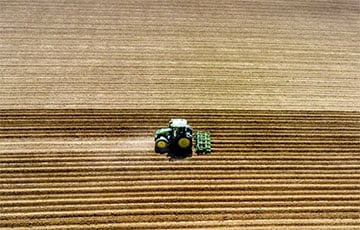Russia Is Gripped By A Food Crisis
34- 9.06.2025, 21:54
- 26,728

Sugar, sunflower oil and flour production collapsed.
Expensive loans, higher taxes, falling harvests and a lack of imported seeds have led to a sharp drop in the production of three basic food commodities in Russia, reports The Moscow Times.
In January-April 2025, Russia's output of sunflower oil fell by 32.3% year-on-year, sunflower oil by 15.5% and flour by 7.8%, Rosstat reported in a report "On the socio-economic situation" of the country.
In April alone, according to Rosstat, Russian factories produced 35 thousand tons less sugar than a year earlier (-36.1%), 108 thousand tons less oil (-15.6%) and 72 thousand tons less wheat and wheat-rye flour (-9.1%).
Total food production began to decline for the first time since 2021: at the end of the first quarter the decline amounted to 0.3%, and by the end of April accelerated to 0.7%.
Sugar output is declining following the fall in the sugar beet harvest, which was hit by the transition to domestic seeds. Their yields turned out to be 20-30% lower than imported ones, according to estimates by the Institute for the Conjuncture of the Agrarian Market (ICAR). Last year, farmers harvested 44 million tons of sugar beet - almost 10% less than a year earlier.
The production of sunflower oil is declining because it brings losses, explained in March, the executive director of the Oil and Fat Union Mikhail Maltsev: the sunflower crop has become more profitable to sell for export in unprocessed form, as retail prices for oil do not cover the costs of producers, and retailers do not risk raising them because of pressure from the authorities. At least two sunflower oil plants in Russia have already stopped production due to financial problems since the beginning of the year.
Flour production has also become unprofitable: the industry has been hit by the increase in the key rate of the Central Bank and the reduction of state support, said the general director of ICAR Dmitry Rylko. In February, the Union of flour and cereal milling enterprises warned the Ministry of Agriculture about the threat of mass bankruptcies due to the growth of interest rates on loans to 25% per annum and higher. Two months later, in April, the Grein Holding group of companies, one of the country's largest flour and bread producers, was on the verge of bankruptcy.
Since the beginning of the war, Russia has experienced food crises three times: in 2023, egg prices skyrocketed, in 2024, butter prices rose to a 17-year high. In 2025, the situation was repeated with potatoes: due to a poor harvest, by May the price increase for potatoes reached 173% year-on-year and broke records for 23 years of available statistics from Rosstat. Retail chains started buying in China and Mongolia, and the authorities of the Kaliningrad region introduced a ban on exporting potatoes outside the region.
The government's measures to regulate the food market turned out to be "belated," Deputy Prime Minister Dmitry Patrushev admitted at the end of May. He recalled that the government launched a whole set of measures at the end of last year: in particular, import duties on potatoes, onions, carrots and other borscht vegetables were zeroed in order to fill store shelves with imports.
"All this should have been done much earlier and in a comprehensive manner," Patrushev said.











